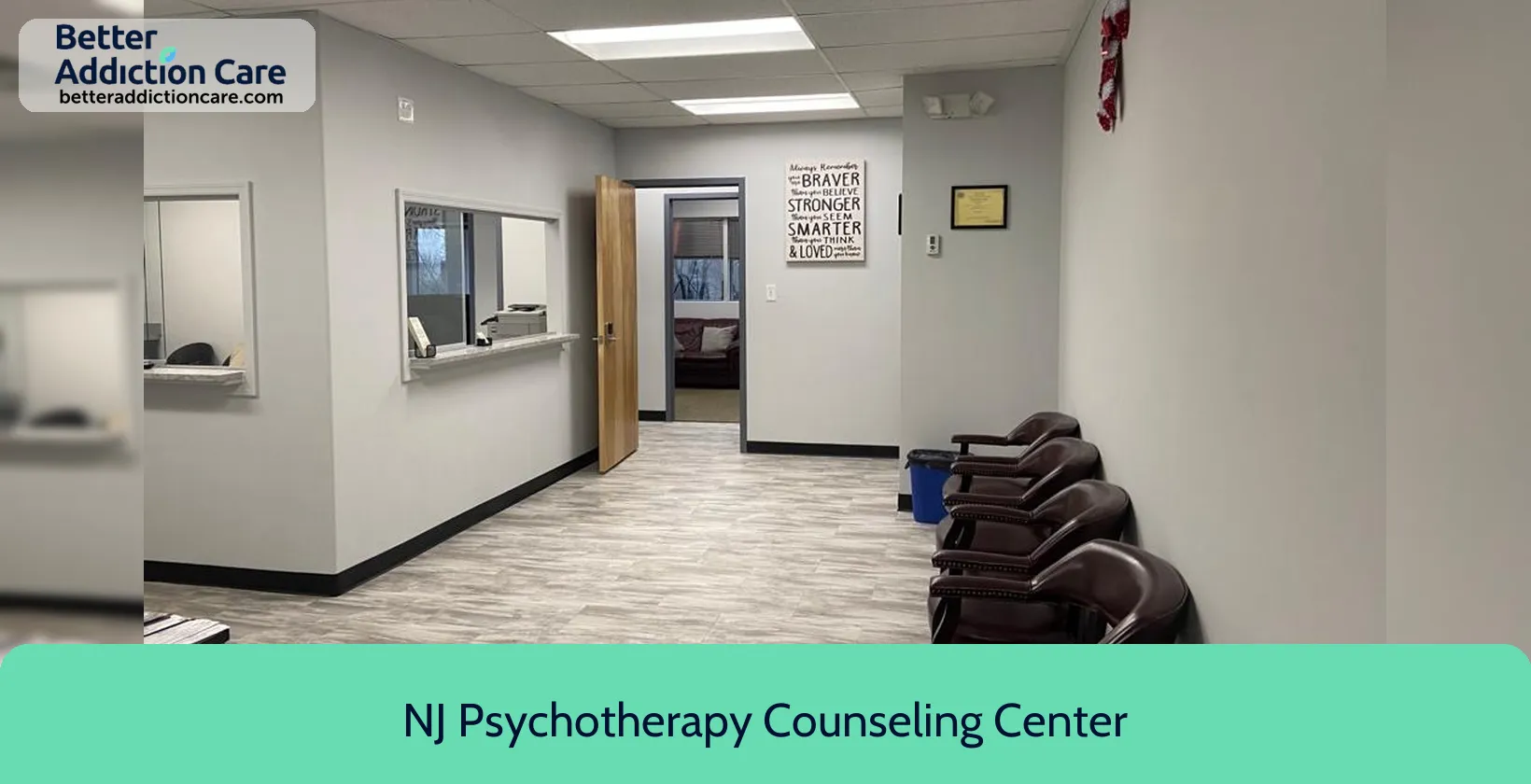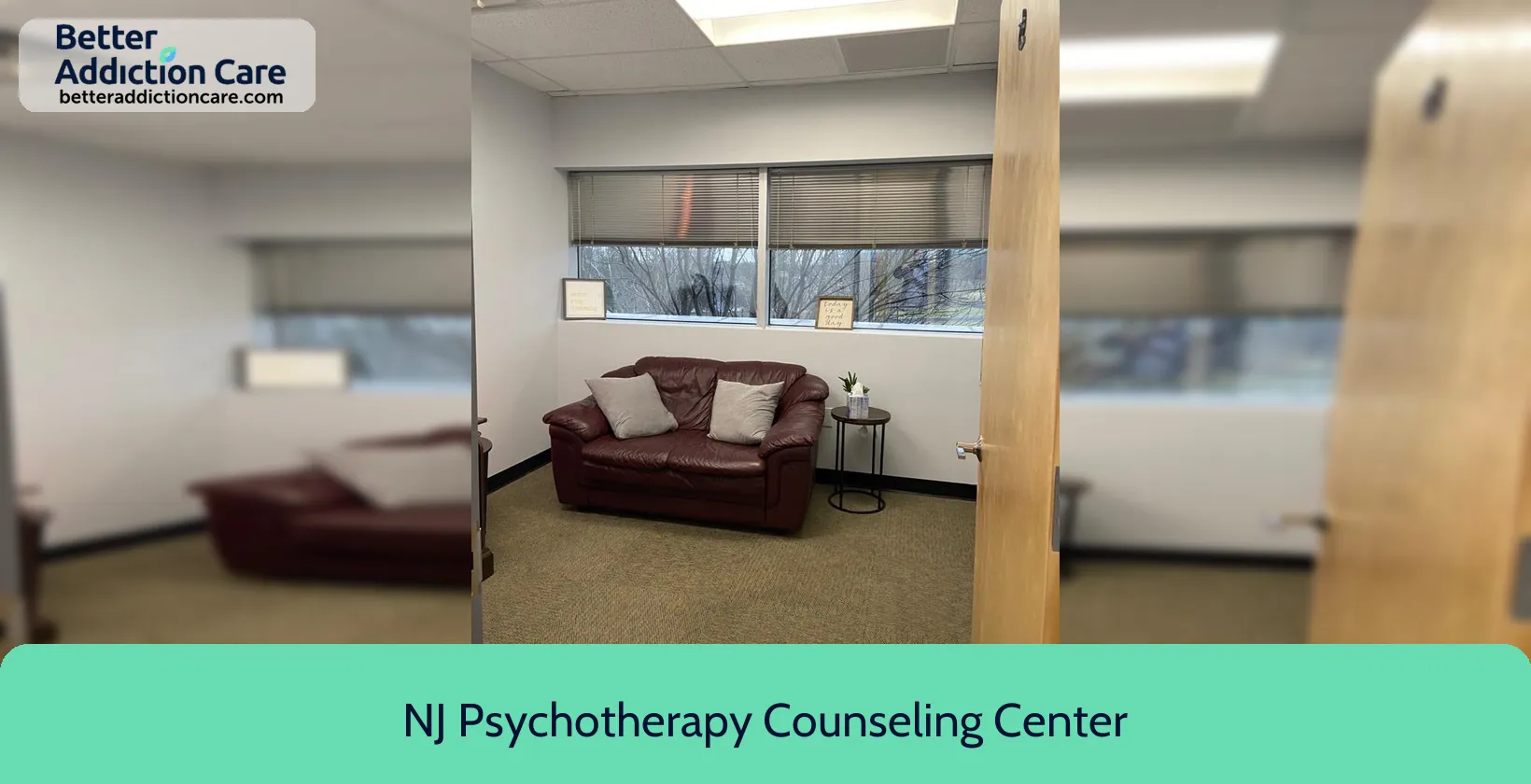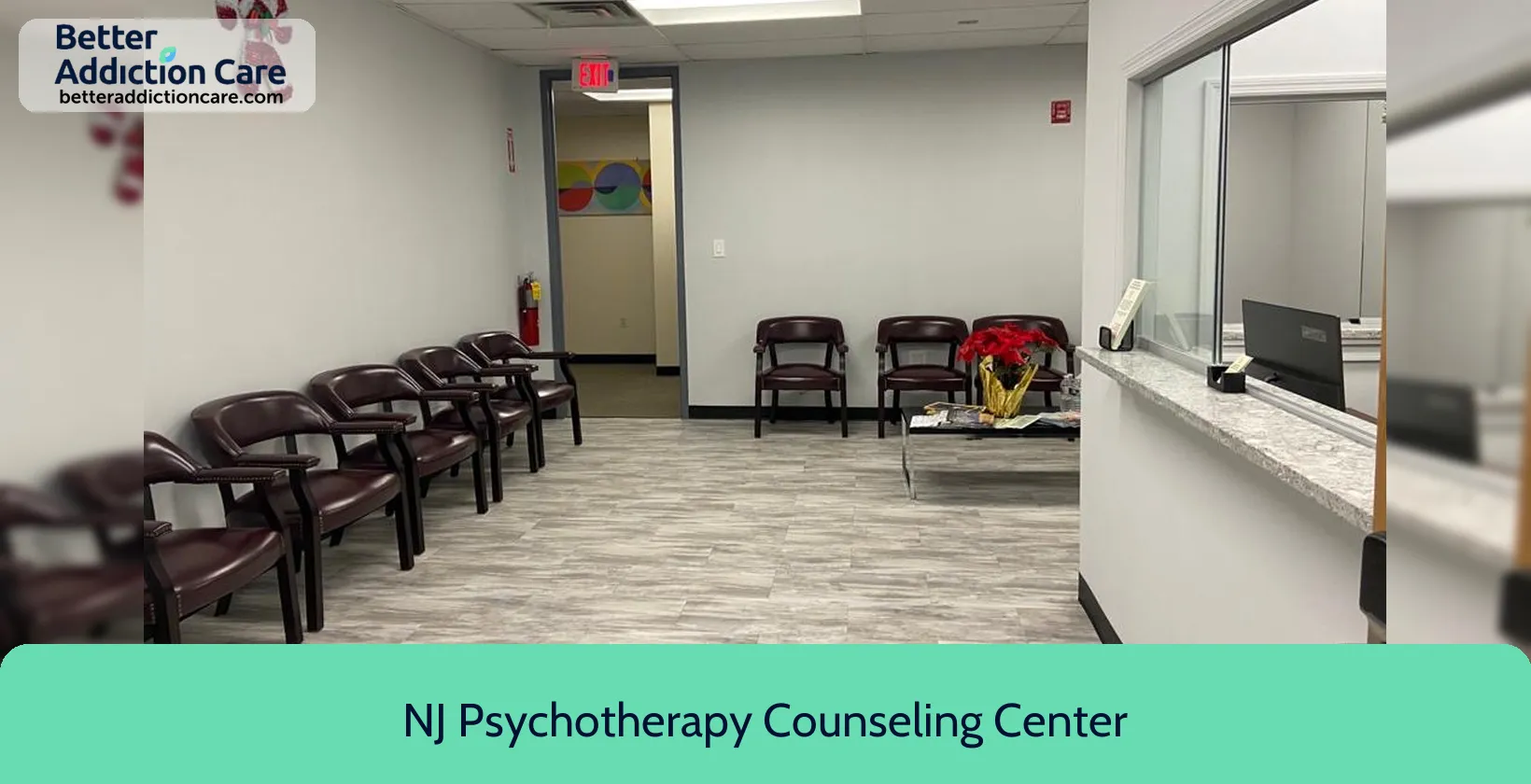NJ Psychotherapy Counseling Center
Overview
NJ Psychotherapy Counseling Center is a mental health treatment center for people seeking treatment near Somerset County. As part of their treatment modalities for recovery, NJ Psychotherapy Counseling Center provides couples/family therapy, group counseling, and cognitive behavioral therapy during treatment. NJ Psychotherapy Counseling Center is located in Somerset, New Jersey, accepting cash or self-payment for treatment.
NJ Psychotherapy Counseling Center at a Glance
Payment Options
- Cash or self-payment
- Medicaid
- Medicare
- State-financed health insurance plan other than Medicaid
- Private health insurance
Assessments
- Screening for tobacco use
- Comprehensive mental health assessment
- Comprehensive substance use assessment
Age Groups
- Children/adolescents
- Young adults
- Adults
- Seniors
Ancillary Services
- Assertive community treatment
- Intensive case management
- Case management service
- Chronic disease/illness management
- Court-ordered outpatient treatment
Highlights About NJ Psychotherapy Counseling Center
6.71/10
With an overall rating of 6.71/10, this facility has following balanced range of services. Alcohol Rehabilitation: 8.00/10, Drug Rehab and Detox: 6.00/10, Insurance and Payments: 6.00/10, Treatment Options: 6.85/10.-
Alcohol Rehabilitation 8.00
-
Treatment Options 6.85
-
Drug Rehab and Detox 6.00
-
Insurance and Payments 6.00
Treatment At NJ Psychotherapy Counseling Center
Treatment Conditions
- Alcoholism
- Mental health treatment
- Substance use treatment
Care Levels
- Outpatient
Treatment Modalities
- Couples/family therapy
- Group counseling
- Cognitive behavioral therapy
- Dialectical behavior therapy
- Integrated Mental and Substance Use Disorder treatment
Contact Information
Read our Most Recent Article About Drug Addiction
DISCLAIMER: The facility name, logo and brand are the property and registered trademarks of NJ Psychotherapy Counseling Center, and are being used for identification and informational purposes only. Use of these names, logos and brands shall not imply endorsement. BetterAddictionCare.com is not affiliated with or sponsored by NJ Psychotherapy Counseling Center.











